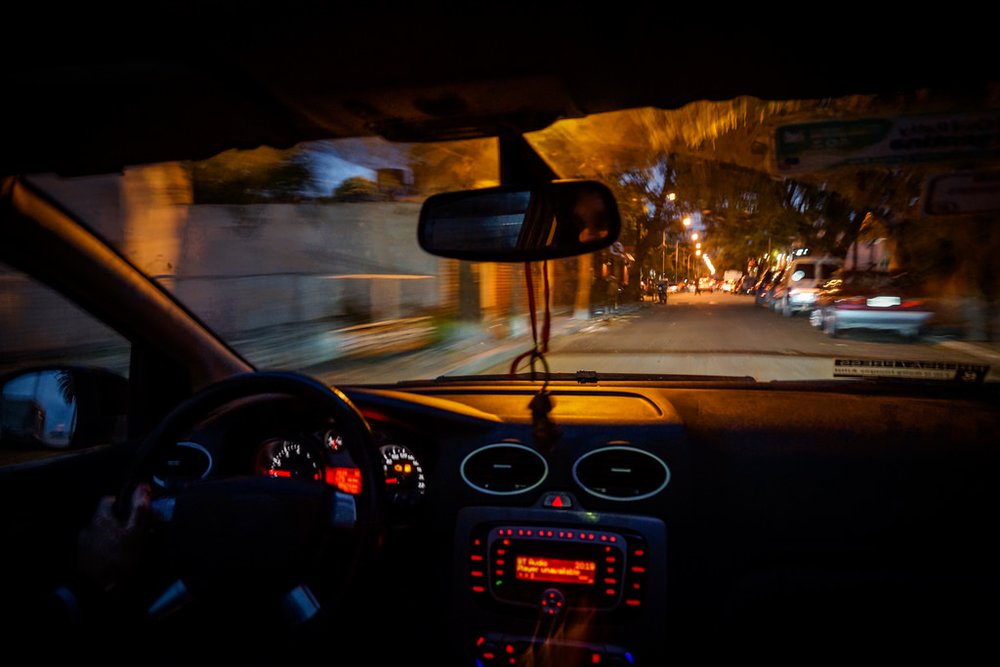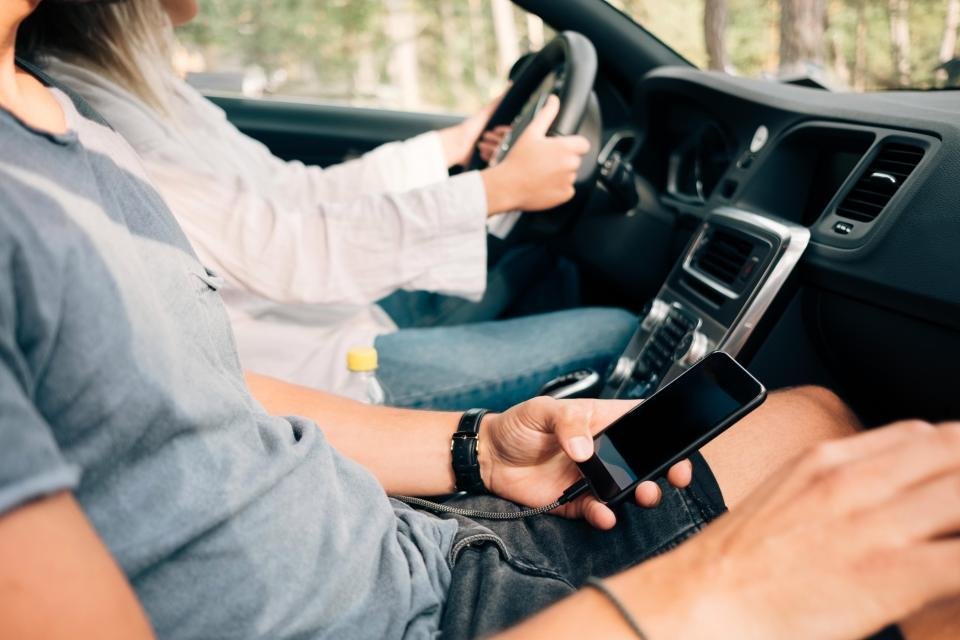We all know that using a cell phone while driving isn’t only dangerous but also illegal. However, a new British law states that even front-seat passengers could get penalized for touching their mobile devices or being on a phone in a moving vehicle

According to a new law, drivers can’t use their cellphones even when sitting in the passenger seat of the vehicle. The law applies only if there is a new driver behind the wheel
New Law for Front-Seat Passengers
According to the British law established in 2003, drivers who are caught engaging with their cellphones behind the wheel can be fined £200 and get six penalty points, but now, a similar law can apply to front-seat passengers in certain situations. A new law states that it is illegal for drivers to use mobile phones even if they are in the passenger seat, and if caught in the act, can be penalized the same way as if they were behind the wheel.
Lawmakers say that if a qualified driver is sitting in a passenger seat next to a learner who is new behind the wheel, they are expected to pay their full attention to the road and not engage with cellphones or other electronic devices. To ensure road safety, the new law has extended the same cellphone rules for front-seat passengers as for the drivers.
Motoring editor, Amanda Stretton says that front-seat passengers are expected to be an additional set of eyes for the driver and alert them on the road. Drivers are humans, and no matter how skilled they are behind the wheel, mistakes are inevitable.
However, when you have another person by your side who acts as your eyes and ears and informs you of any unusual activities on the road like a good co-pilot, the chances of getting into an accident decrease significantly. This is why the new law, which was introduced in March, 2017, makes sense.
Physical Interaction with Phones Considered Illegal
It is considered commonsense to avoid texting, calling or staring at the phone screen instead of the road while driving, but what about listening to a podcast or using handsfree to make a call?
The laws regarding cellphone usage on the road are a grey area which is why the South Wales Police Road Policing Unit has collaborated with various insurance companies to release a cellphone usage guide for drivers to help them avoid tragic consequences of road accidents as well as hefty fines.

According to the guide, any engagement with your cellphone that requires physical interaction – i.e. touching the screen, skipping songs, accepting or declining calls, unlocking the phone or using a virtual map for navigation– is absolutely impermissible since it prevents drivers from paying full attention to the road and keeping both of their hands on the wheel.
Voice Commands, Bluetooth, and Handsfree
It is also illegal for drivers to use their phones while stopped at a red light or stuck in traffic as long as their engine is running. However, it is permissible to use handsfree or Bluetooth as long as your hands remain on the steering wheel and your eyes on the road.
Although using handsfree is legal while you’re driving, if the act causes a distraction or leads to a road accident, you can be held responsible for it. In case of an emergency when it is not safe or practical to pull over, calling 999 or 112 while driving the car is considered legal.
If your phone supports voice commands, it is considered legal to engage with the device using speech, but the police department says that the best advice for drivers to avoid road accidents is to simply pull over and switch off the engine before using cellphones.

Drivers are not allowed to physically engage with their phones in a vehicle – even if is stopped at a traffic signal
Heavy Fines for Road Offences
According to tougher rule introduced in 2017 to ensure road safety, motorists can have their licenses revoked if they accumulate six penalty points in the first two years of license issuance. The previous penalty limit was 12 points. Drivers who are caught committing an offence on the road can pay up to £1,000 in fine in Britain. In U.S. if a case of road offense goes to court, drivers can accumulate up to £2,500 in fines.
Sunglasses are a summer staple for many drivers who don’t want to squint while driving under direct sunlight, but the use of certain shades behind the wheels can also land in up to £2,500 in fine. AA explains that extremely tinted sunglasses with category 4 lens filter only permit 3 per cent of sunlight and can impair the driver’s eyesight on the road.
According to Highway Code 237, drivers are expected to slow down or stop if they are dazzled by sunlight. Hence, it is advisable to wear shades which are only slightly tinted and allow you to see the road clearly while blocking out some of the harsh sunlight.










